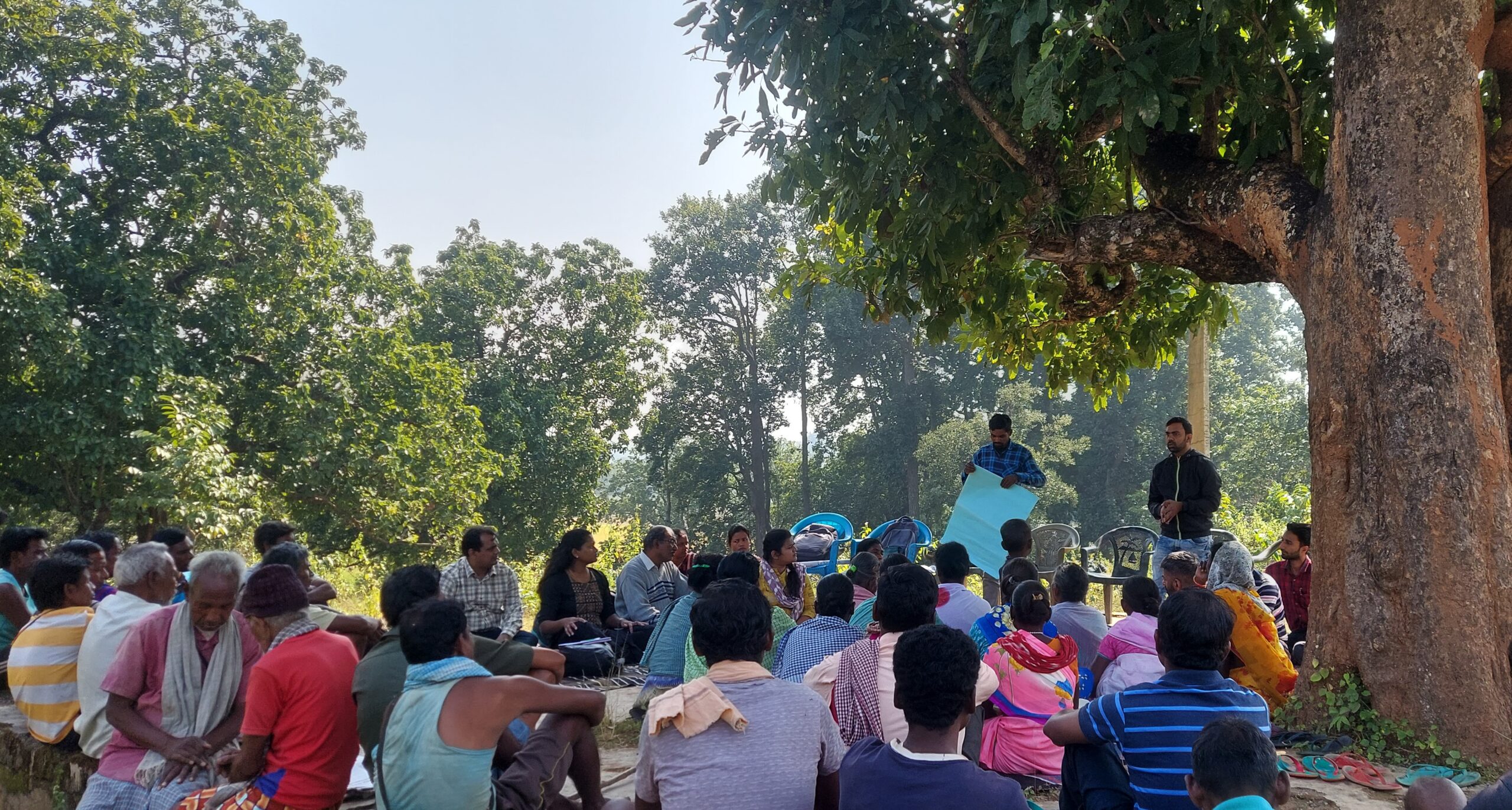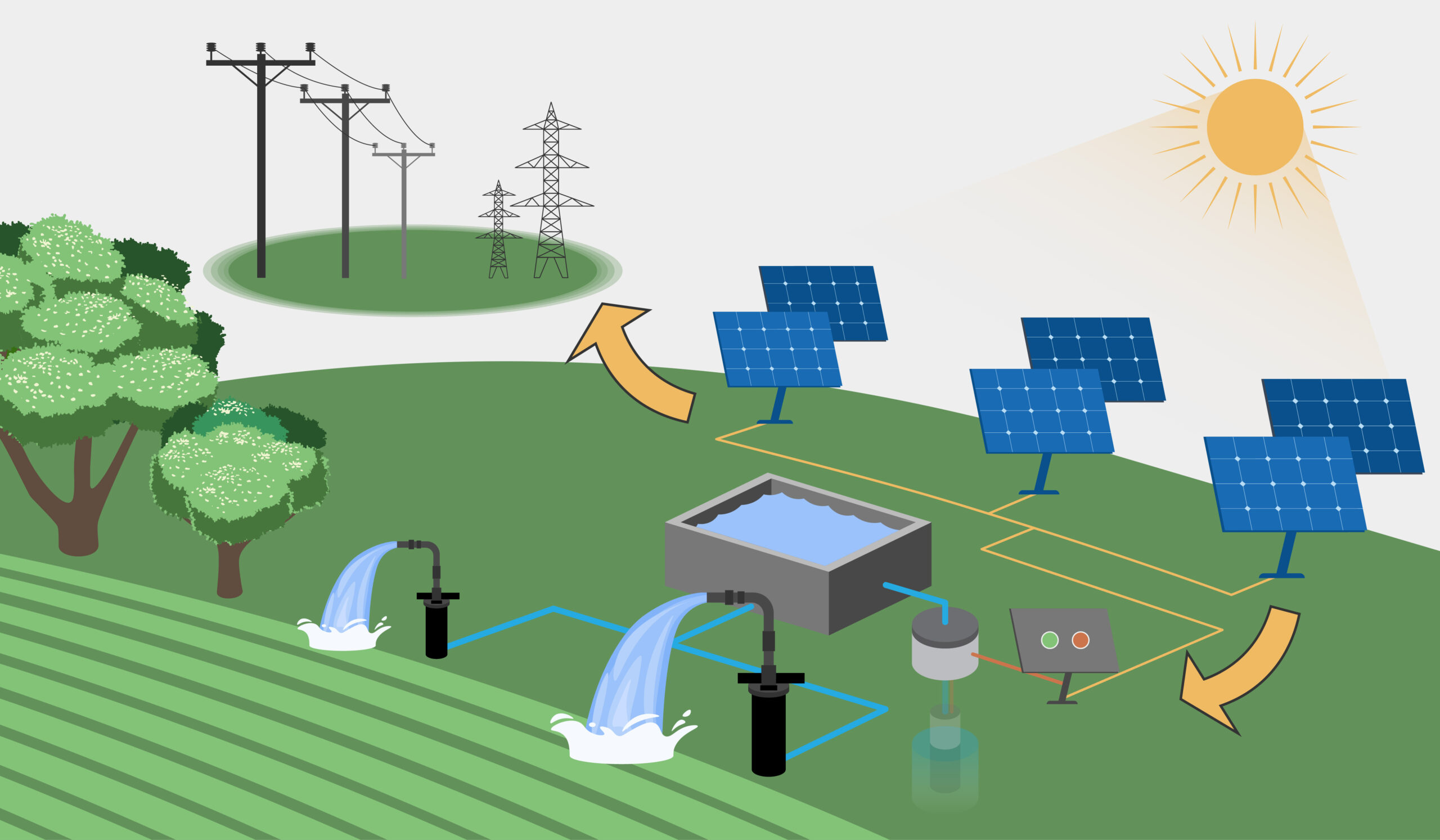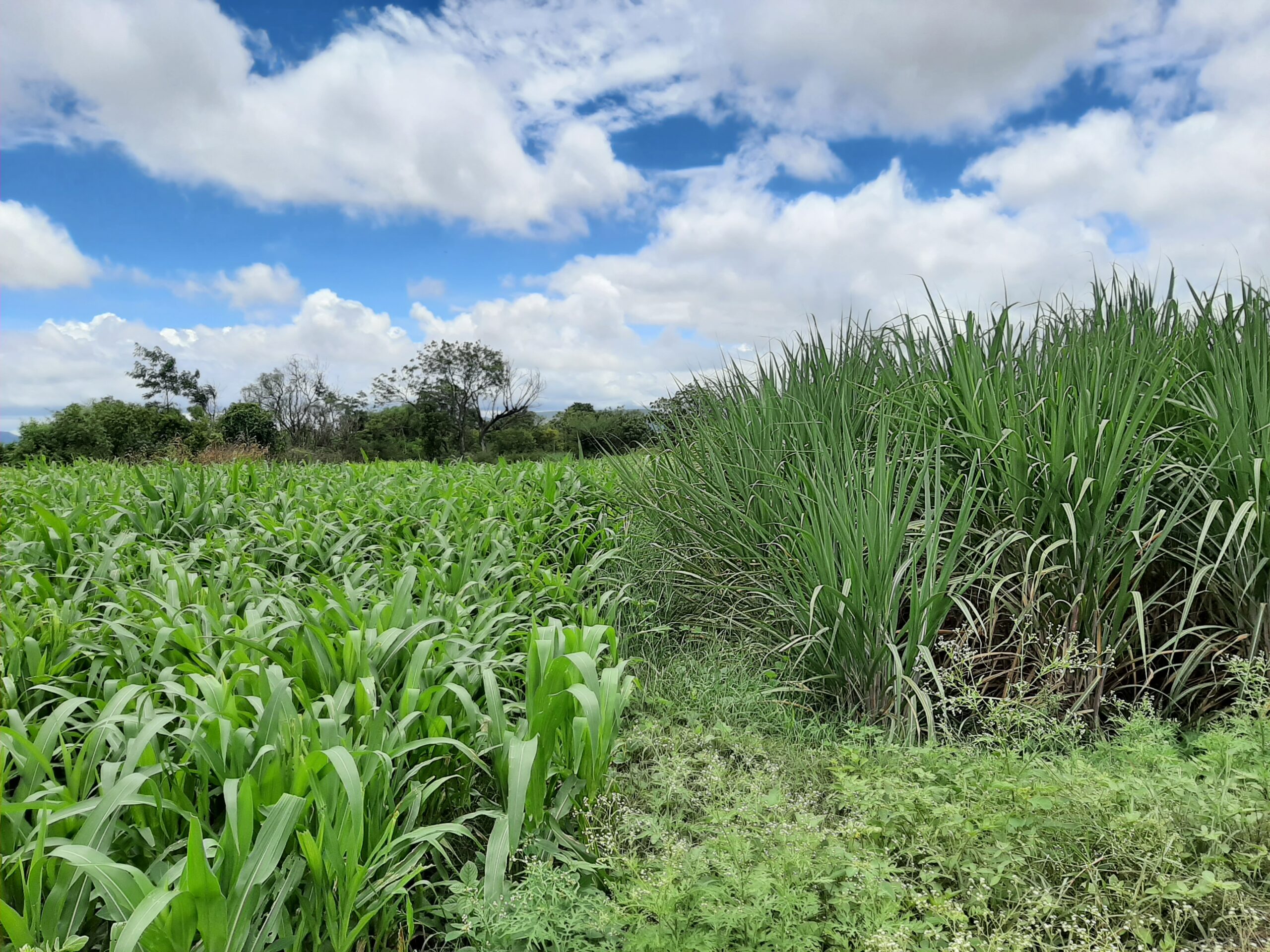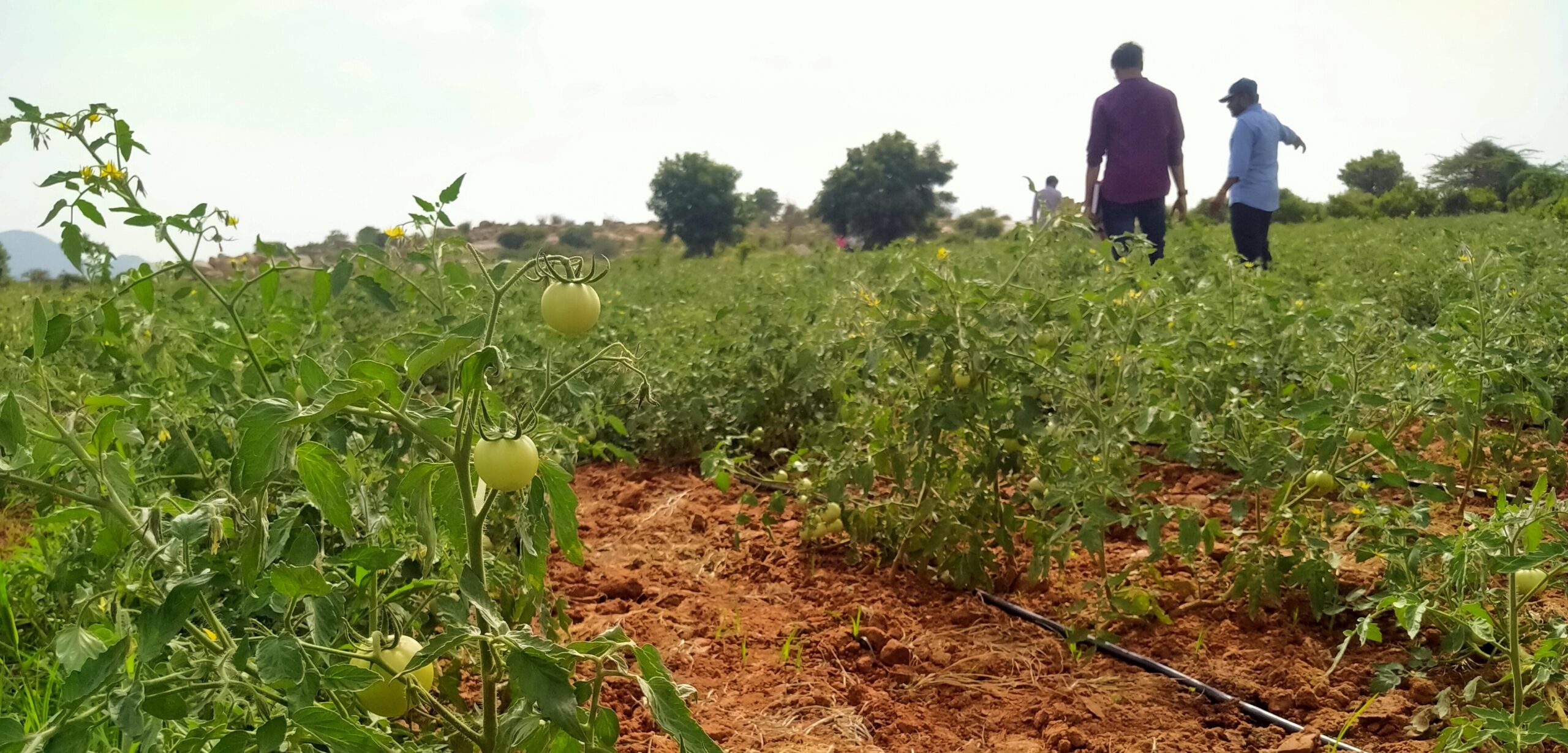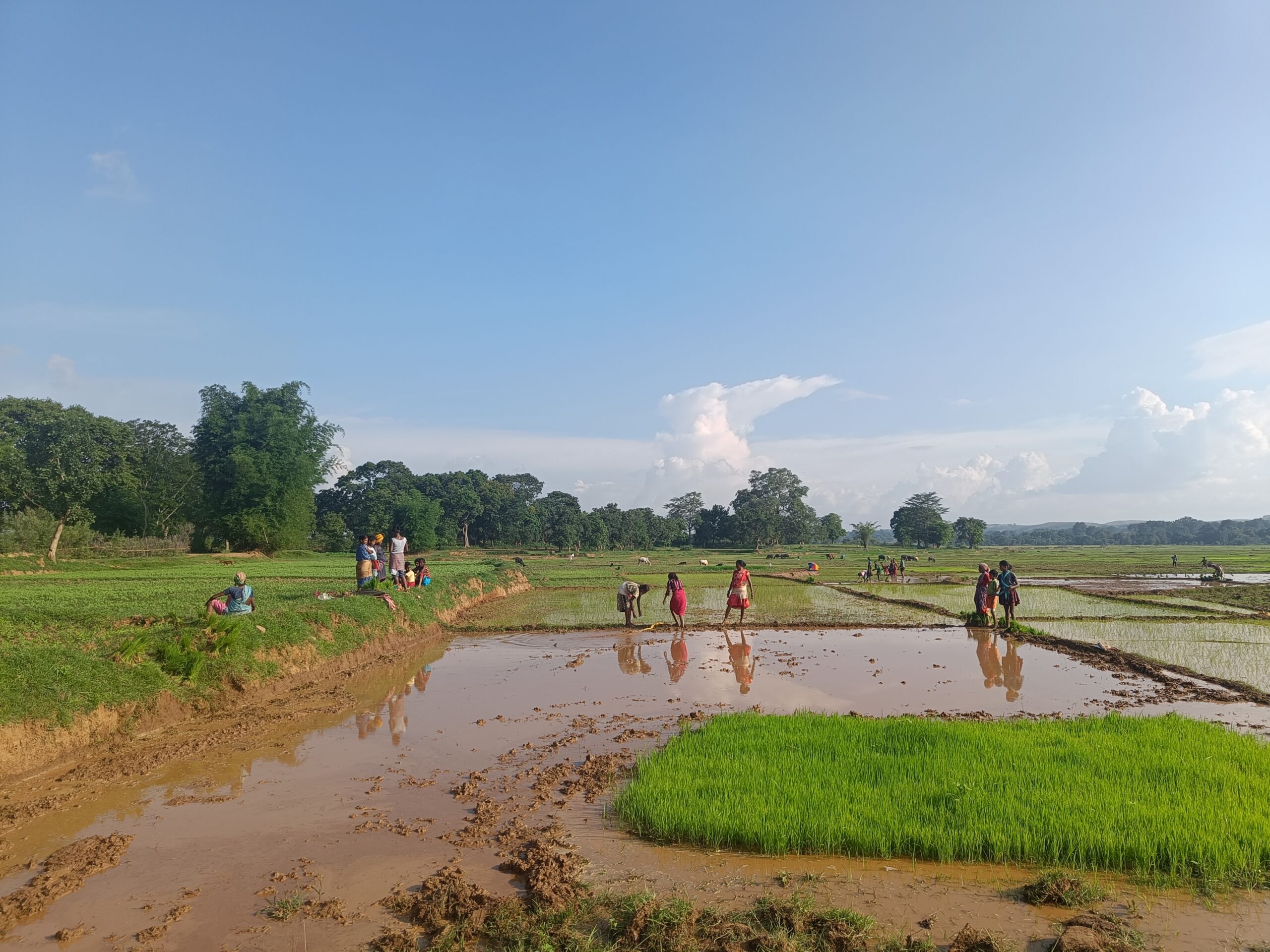Field Notes from Lohardaga: How a Grassroots Organisation in Jharkhand Shares Knowledge
We are grateful to PRADAN (Professional Assistance for Development Action) for facilitating this visit.
Dibyendu Chaudhuri (Research and Advocacy at PRADAN) and Smita Kumar contributed to this blog.
We were welcomed by a group of around 30 women in uniform white and red sarees when we reached Lohardaga village, about two hours from Jharkhand’s capital of Ranchi . These women are part of an important cadre of Community Resource Persons (CRPs) in this village. They told us that their lives changed significantly for the better ever since they joined a Self-Help Group and met other women CRPs, Community Service Providers (CSP) and trainers who inspired and supported them to also become earning members of their families and community.
Our conversations with them helped us understand the scope of their work, how they carry it out and the challenges they run into in terms of accessing up-to-date knowledge that is critical for them to support other villagers as effectively as possible. Our interaction with these women was facilitated by the PRADAN, a grassroots civil society organisation that works to improve sustainable livelihood opportunities for rural families. A majority of CRPs we met were women, which is a testament to PRADAN’s work on the ground to empower women’s collectives.
Who are CRPs and why did we travel to Lohardaga to understand the work they do?
We also spent considerable time with PRADAN’s field staff to understand how they support these networks of community leaders. In this two-part blog series we document our key learnings from this field visit. We first explain the different groups of people involved in carrying out rural development projects in the region and summarise how knowledge is typically shared from one level to another. In the second part, we explain five key insights and look at some of the urgent needs of these grassroots workers in terms of how they manage and share information.
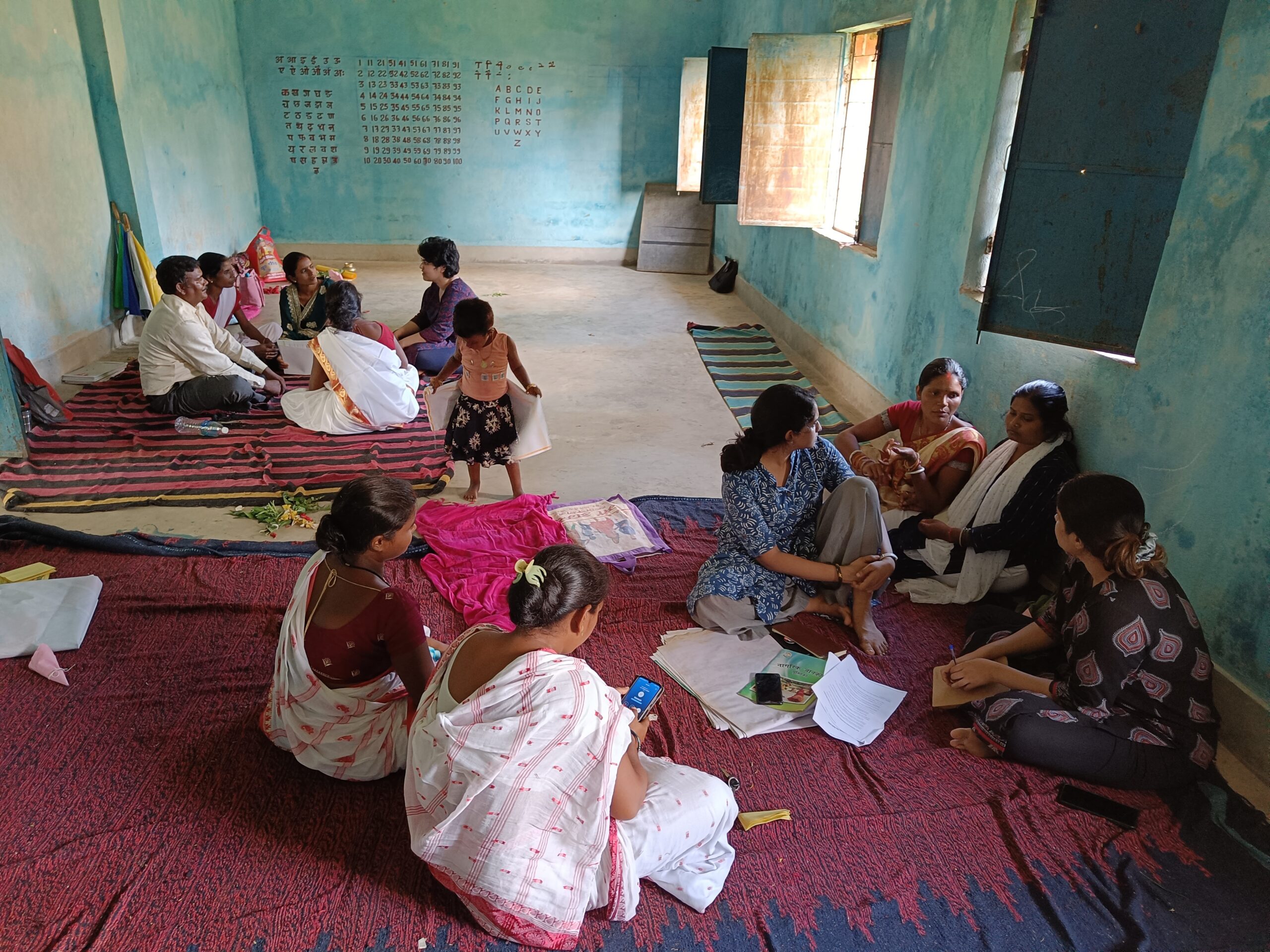
WELL Labs researchers speak to Community Resource Persons and PRADAN’s field staff in Lohardaga, Jharkhand, to understand how they access knowledge. Credit: Partik Kumar
We are part of a consortium called Green Rural Economy, which aims to make knowledge more discoverable and accessible, and thus improve the state of livelihoods in rural India and address challenges related to land and water sustainability. One step to achieve this ambitious goal is to build a platform to enable efficient knowledge discovery.
User feedback is key to doing this right.
To be able to do this right, we need to work very closely with the users we want to build this platform for, i.e. grassroots organisations and their field staff. Specifically for the first version of this platform, we are working with partners like PRADAN to identify the knowledge needs across the various levels of their organisation, ranging from field teams to last mile extension teams, and trace how they manage and communicate information.
We are grateful to PRADAN for their time and insights on how they access knowledge and where they run into roadblocks. We attempted to locate their pain points and aspirations, and to visualise how they would interact with and benefit from the platform.
Integral to PRADAN’s model for rural interventions are Community Resource Persons, who are trained by PRADAN and then stay on their payroll, or get employed by the State Rural Livelihoods Mission. Their job is to train farmers and provide support for different activities, such as regenerative agriculture or women’s health. A Community Service Provider (CSP) is a type of CRP. They are independent contractors or micro-entrepreneurs, who can carry out specialised tasks such as vaccinations for poultry or livestock.
Read | Can Playbooks Promote Green Rural Economies? Insights From Conversations With CSOs
A rank higher than CRPs are Master Trainers (MT), who have more expertise and experience, and can conduct training sessions for other new trainers and CRPs. PRADAN’s field staff support both groups.
For us, it was important to go to the village these CRPs and MTs operate in and understand how they work because they’re our potential users. Watching them carry out their current routines, tasks and interactions with the PRADAN field teams helped us identify chatbots as a suitable interface for knowledge delivery.
We are planning to test a WhatsApp chatbot with CRPs who work on regenerative agriculture or livestock, the two main themes that PRADAN focuses on in the region.
We had a few hypotheses before we went to the field.
These assumptions were based on research and user conversations we had carried out so far.
The first was that there is a need for a digital platform because CRPs as well as field staff employed with PRADAN need to disseminate information more effectively. This was found to be true.
The second assumption we had was that Master Trainers want their training to reach far and wide. The major hurdle for them is that their training is not well documented making it difficult to share their knowledge. This was not entirely accurate.
Most MTs did feel that their work was not always relevant beyond their district. They also viewed in-person interactions and soft skills-based workshops as integral to the implementation of a project. Videos or documents cannot substitute them (but they could potentially supplement or substitute repeat-trainings).
MTs felt their work can’t scale beyond their district due to language barriers.
This is a hurdle that could potentially be addressed with translations software. MTs also said that travelling to another district takes a lot of time; they already had packed schedules with current training sessions. Many of them were also rural entrepreneurs who carried out work such as supplying inputs to farmers.
Finally, we had the hypothesis that field staff need digital and non-digital knowledge products to plan and implement on-ground interventions. This was confirmed to be true. We explain their exact requirements at the end of this blog post.
Read | Explainer: How Green Manure Can Help Degraded Farmlands Sustain Themselves
This field visit was a hugely beneficial learning experience for us because it clarified how knowledge is gathered and disseminated among a group of workers who play a central role in implementing important rural development activities. So far, we have mentioned a number of groups so we want to first explain how knowledge bounces from one to another to benefit people.
We learnt about the typical trajectory of knowledge dissemination.
- Training for PRADAN field staff:
The NGO’s staff conducts exposure visits and interacts with the community as well as their colleagues in the organisation to learn more about their area of work. A major component of all PRADAN training programs is exposure and immersion visits as well as demonstrations, and talking to people face-to-face are a core part of the process.
- Training conducted by PRADAN staff:
The staff then passes on their learnings through workshops that they lead for CRPs and MTs. They provide reference material to them in the form of brochures or booklets, and circulate videos and photos specific to the subject the training focused on.
- Training conducted by CRPs:
The CRPs then pass on the information they learnt to another level of last-mile trainers in villagers called Krishi Sakhis and to farmers. The CRPs continue to play an active role by sitting in on these final stages of knowledge sharing. The Krishi Sakhis attend demonstrations and do practical exercises, which help them learn and retain information. At this stage too, booklets and manuals are circulated both in print and in WhatsApp groups. PRADAN provides all material.
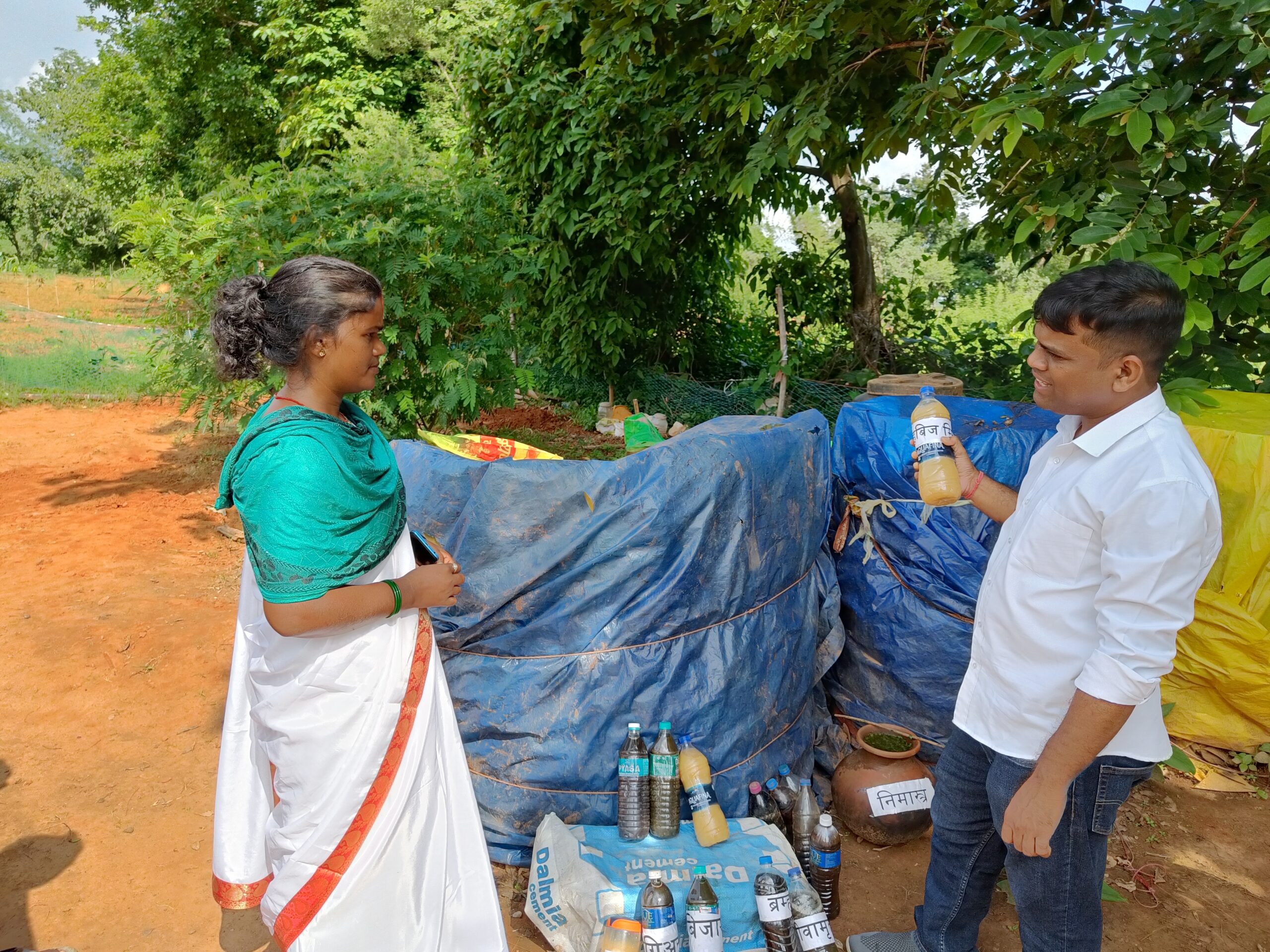
A Bio-input Resource Centre where Master Trainers and PRADAN’s field staff make available various bio-inputs for farmers to use. Credit: Partik Kumar.
Any questions that farmers or Krishi Sakhis have are addressed at regular meetings. Self-Help Groups or Gram Sabha or village councils convey these. More urgent questions are addressed over phone calls. The CRPs told us that they receive at least five calls a day. If the CRP cannot address a problem over the phone, they can delegate a Krishi Sakhi in the village to visit the site if the CRP cannot go themselves. If the CRP does not know the answer to the question, they reach out to PRADAN staff for help.
This is the flow of information and troubleshooting. Against this process, we drew five key lessons on the kind of challenges that people run into while accessing and sharing knowledge. We summarise this in Part 2 of this series.
If you would like to collaborate with us or know more about the Green Rural Economy project, write to smita.kumar@ifmr.ac.in or srushti.paranjpe@ifmr.ac.in.
As part of the Green Rural Economy (GRE) project, we are conducting a series of ‘clinics’ that cover a diverse range of topics. By bringing together experts who can ‘diagnose’ your problems and help find answers, we aim to create a platform for knowledge exchange
The clinics will cover millet farming, watershed management, natural farming, poultry farming, farmer producer organisations and self-help groups, women’s rural livelihoods and rainfed farming
To know more, fill up this form or write to lakshmipranuti.choppakatla@ifmr.ac.in.
Th
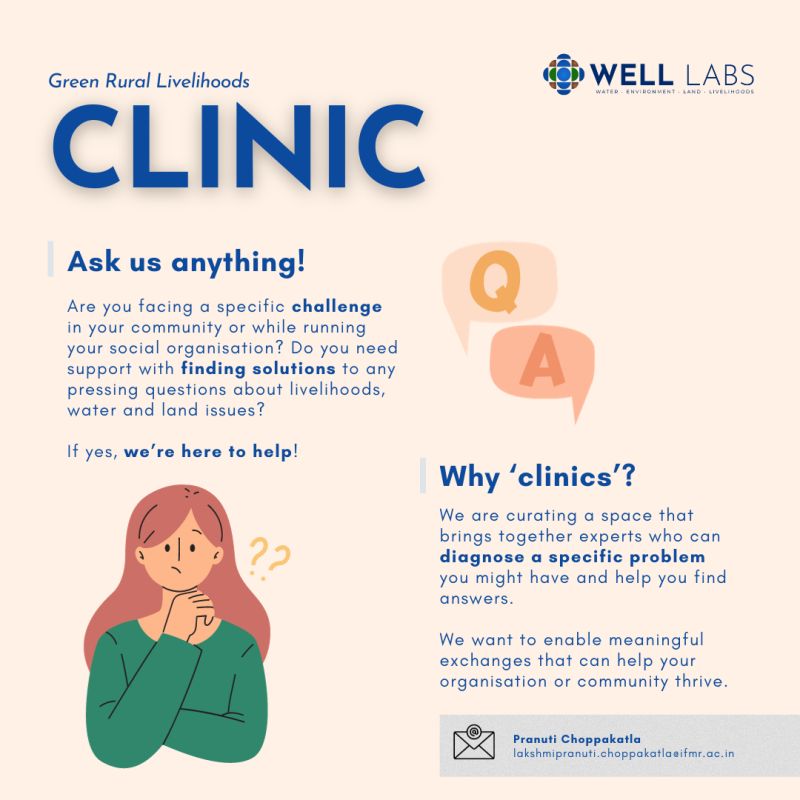
Edited by Kaavya Kumar
If you would like to collaborate with us outside this project, write to us. We would love to hear from you.
Follow us and stay updated about our work:


